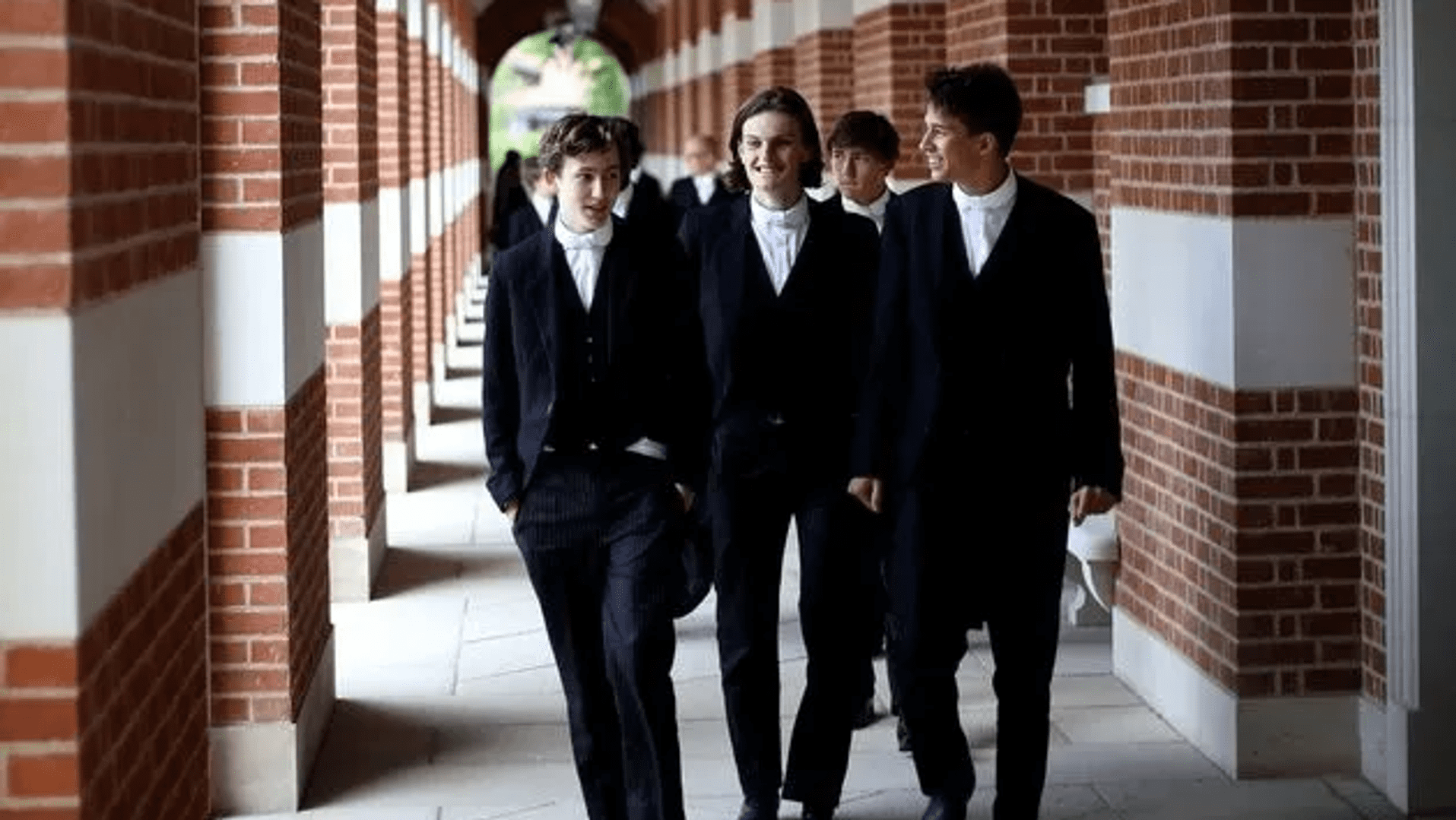20.07.2019
China's Eton Envy - Why They Loved British Gentleman Concept
China's new elite is taking over the world, and they’re modelling them on British gentleman.
_2.webp)
Article contribution by Yuen Ren
Gerard Manley Hopkins said that if the English had done nothing but ‘left the world the notion of a gentleman, they would have done a great service to mankind’. He was right. Yet in Britain today, you’re so very embarrassed by what we regard as your greatest single industry — turning out polished gentleman.
Here in China, we look at the education statistics you view with horror — the ones that show how independent schools teach just 7 per cent of the population and yet their alumni account for 51 per cent of solicitors, 61 per cent of senior doctors, 67 per cent of Oscar winners and 74 per cent of judges — and we think: yes please. That’s why we are so keen to send our children to Britain to learn. A fifth of new pupils at your leading boarding schools now come from abroad, and we Chinese represent the greatest influx.
In Chinese, the word that best translates as ‘gentleman’ is shenshi, which specifically refers to the idealised British male who strides around in Jane Austen novels. Most of us are aware that Britain no longer contains many men riding around on horseback in Georgian finery — but we are nevertheless fascinated by the idea. Laden with aristocratic connotations, shenshi is also used as an adjective, to describe a refined character or noble air; I’m often asked if I’ve had experiences of shenshi British men, having studied at one of the top universities in the UK.
Alas, I never did meet Mr Darcy. But like 160 million Chinese viewers I have watched Downton Abbey and also developed a crush on Alex Hua Tian, the 26-year-old equestrian who surrendered his British citizenship to compete for China in the Rio Olympics. He was perfectly bred for our adoration: half Chinese, half British, very good-looking — and Eton-educated. He gave China its own version of the quintessential English gentleman.
The Chinese media has been making a lot of the British elite recently, and its obvious associations with privilege, class and wealth; but the tone here is always in praise of success. Even David Cameron and Boris Johnson’s joint stint in the Bullingdon Club is applauded: a privilege that paves the way for success is nothing short of success in itself, surely? Britain’s enduring political stability is seen in large part, as the product of this unique system.
Admiration for the British upper class also results from the nostalgia we Chinese have for the nobility we lost. Imperial China endured for more than 2,000 years and boasted dukes, princes and powerful dynasties — but it survives today only in literature and drama. The Chinese, too, once bred great equestrians and owned palatial estates much like the great country houses in Britain. We mourn our lost junzi (aristocrat), who were known for ‘speaking with their mouths, not their fists’ and epitomised the Confucian values of moral uprightness — a notion less sexy, perhaps, than Colin Firth in a damp shirt, but close enough.
The Chinese have always been education-obsessed, but while private schools did once exist here, particularly for the sons of the upper classes, they were never as institutionalised as British public schools. Students were drilled in classical texts and boys were prepared for entry into a rigid imperial civil service rather than being let loose into what we consider your key bastions of free thinking — the similarly ancient universities. Nor did Chinese schools encourage sport or societies; rugby would never have been invented here.
It’s no coincidence, then, given China’s recent obsession with wealth, that busloads of Chinese tourists descend on Eton each day, peering through the gates at a front quad they are forbidden to enter. Oxbridge colleges attract visitors from around the world – but few other nationalities would organise group tours to gaze upon a boys’ school from a distance.
What today’s Chinese ‘new middle class’ hold in greatest esteem is the exclusivity that Eton symbolises. They are desperate to have their sons trained to such exacting standards. In China, all such privilege was swept away along with the ‘elite class’ during the Cultural Revolution of the 1960s and the instability before and afterwards. Communist China was consumed by the urge to erase everything that smacked of power and elitism, from books to ancient statues. Only now are old bourgeois concepts making a comeback.
In contemporary China, powerful families are rising again, and there is a new interest in tracing family trees and collecting hand-me-downs. Today’s China is one where social mobility — more often than not — requires connections and, increasingly, the right heritage. The phrase ‘second generation’ describes a new order, rapidly emerging and boasting a special status: the children of the nouveau riche who made their money thanks to the economic reforms of the 1980s. This new class is abhorred in the press for its spoilt, reckless behaviour — yet everyone in China would like to be part of it.
Our super-rich do not yet possess the refined qualities of a true elite. Many of them were entrepreneurially minded farmers who took advantage of a time when a lot of hard work could translate into untold success. They would like their children to be different. They want them to be well educated and refined — ready for a life without struggle. And what could be better preparation for that than an exclusive private education at the same ancient British institutions that have upheld and maintained the distinction our fast-rising middle classes want for themselves?
In China, we don’t disparage the notion of an English gentleman. We seek to copy it. Our new elite looks certain, some day soon, to take over the world — and when it does, it will be with thanks to Britain’s most exclusive institutions.

